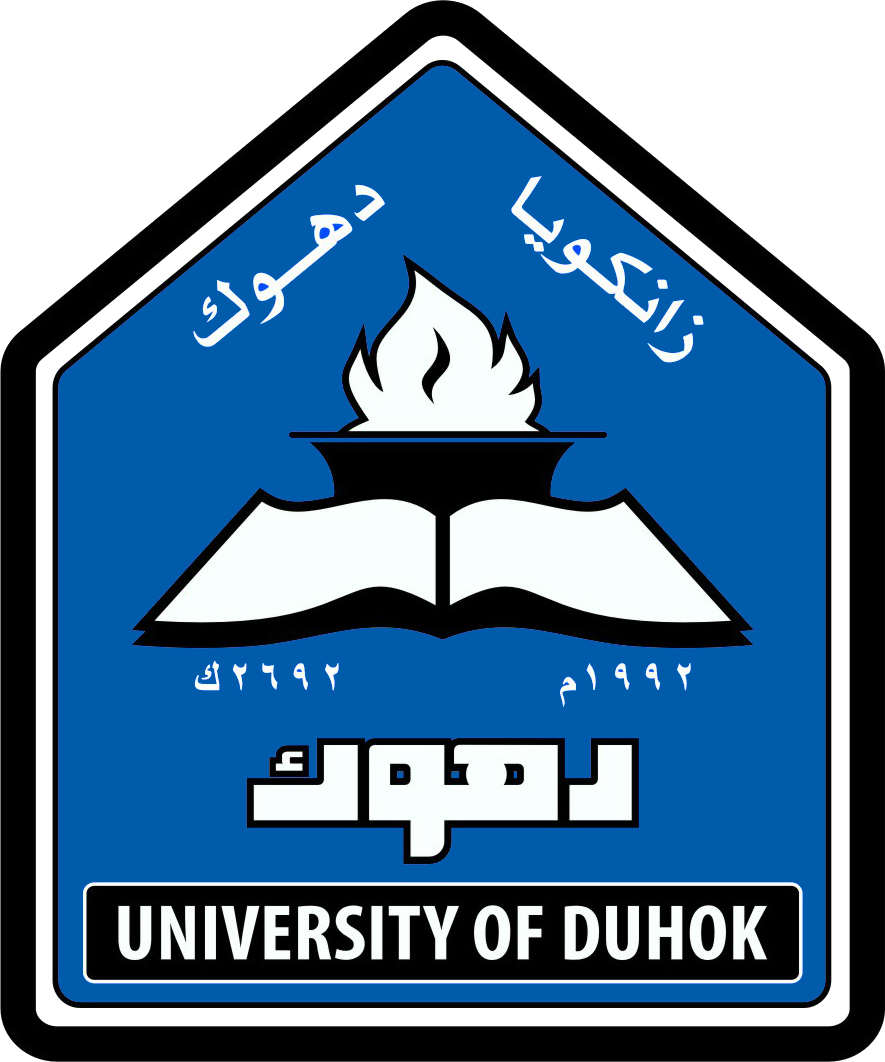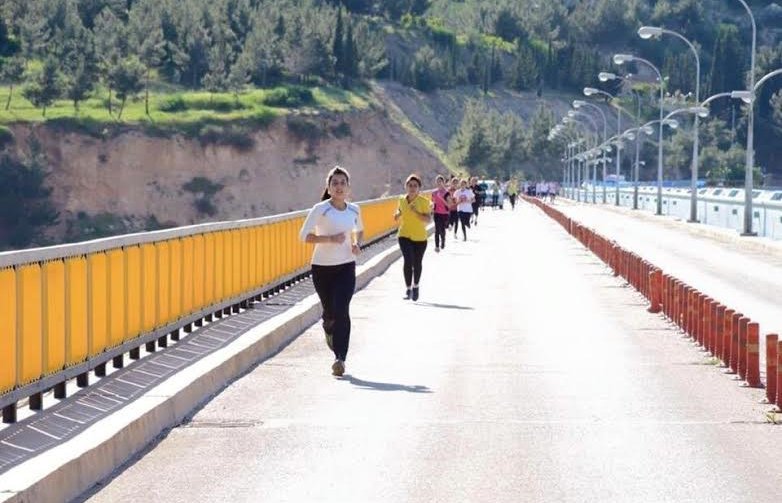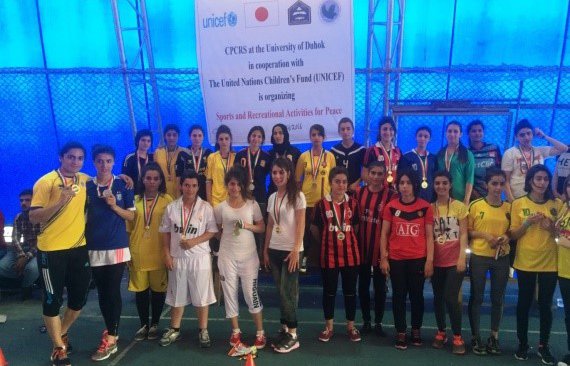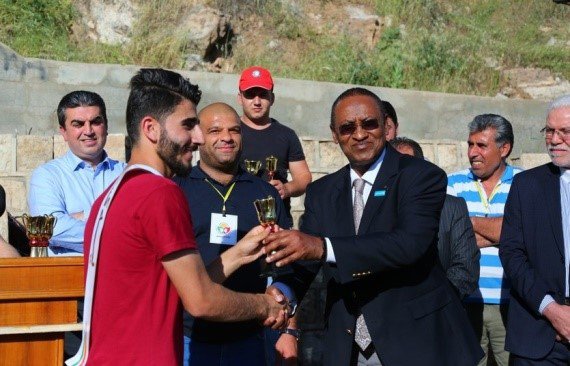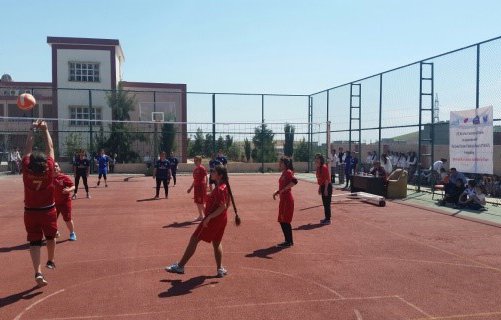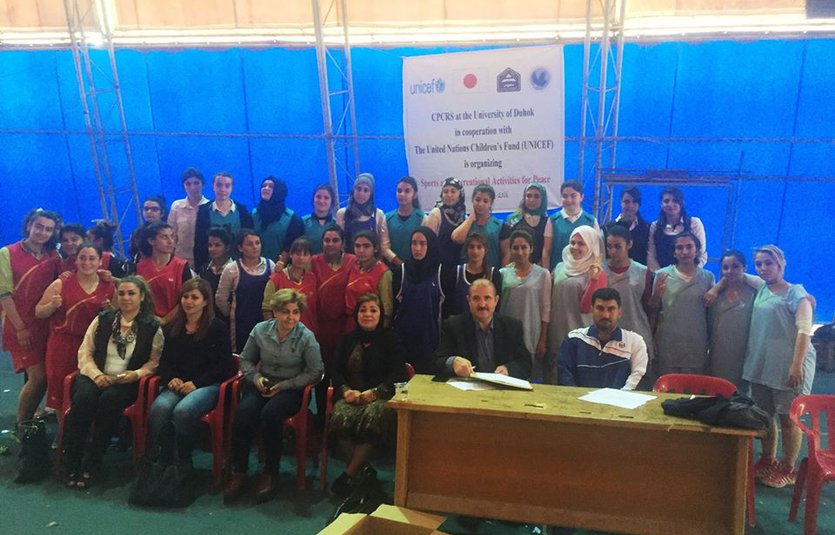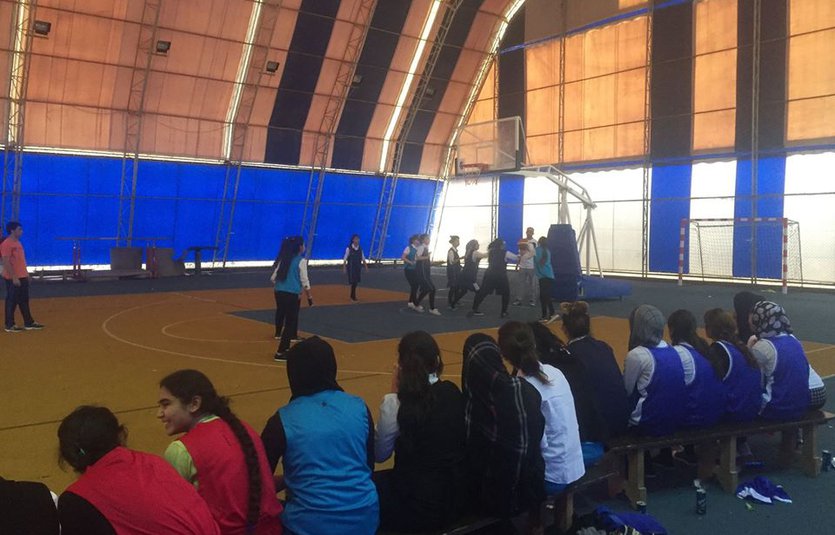The Project also included organizing and conducting ten main competitive sport activities with diverse teams, including players from a cross-section of communities, ethnic groups, and religions. The ten competitive sport activities were: two volleyball events (one male, one female), two basketball events (one male, one female), two events for ping pong, one mini-marathon event, two relay races(one for females and for males), two chess events (female/male each), two gymnastic events (female/male each) and two football events. The events were held on dates set out in Appendix I.
Students from 15high schools, listed below, participated in the sporting events: SadqBuha’ldeen (males), Trade (males), Duhok Professional (mixed gender), Barookh (mixed gender), Derek (mixed gender), Warar (mixed gender), Al-Ta'yoush (males), Netawa (males), Zanezti (males), Awaz (females), Duhok (females), Tanahi (females), Duhok Sport Institute (mixed gender), Shazan (females), Yarmend (males).
In addition to forming teams of diverse ethnic and cultural background, the project sought to form teams composed of players from different schools. However, because multi-day competitions were being coordinated with school principals, who could not attend every day but had to accompany students to events, teams were selected from within schools. In order to properly generate teams between schools and with mixed ethnicity, more time would have been required to ensure that all schools were available for all events.
Although the games were competitive, prizes were distributed to all participants to emphasize the feeling of camaraderie. The distributed awards differed from one activity to another; for individual sports such as chess and ping pong, small cups or credit cards for mobile phone credit ($5-$10) were distributed to participants. For team activities with high participation rates, such as relays, symbolic medals were distributed to all participants.
The Center partnered with students from Duhok Sport Institute, who guided teams during matches on game rules and regulations. All of the sportswear outlined in the project's budget were purchased and distributed to the participating students, with recipients signing for materials and a confirmation of the concerned principal. Sports equipment and other materials that were purchased were donated in-kind to the Sport Institute and the schools in which the activities were hosted. The receipt of the equipment was documented in due process.
